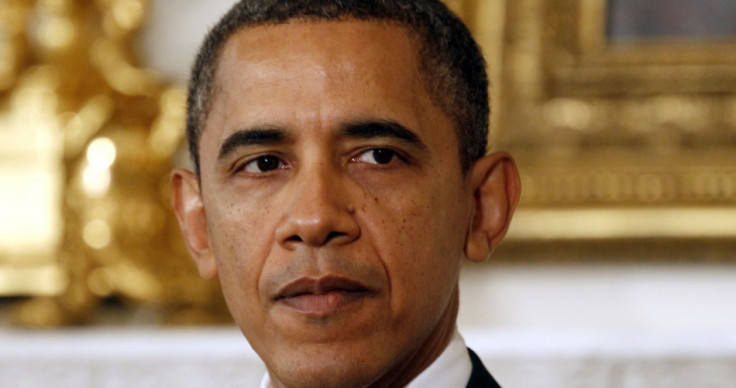US 2012: Obama Only Winner in Long GOP Fight

Within the Republican Party everybody has a different theory for why the process of choosing a presidential candidate is taking so long, but one aspect remains unanimous: the longer the party's primary season goes on, the stronger President Obama will be in the autumn.
By this time in 2008, Mitt Romney had been out of the race for three weeks and John McCain was the party's presumptive nominee. But on the eve of primaries in Michigan and Arizona, Romney and Rick Santorum were polling so close that many national Republican leaders were voicing consternation that the turmoil could cost the party the White House.
Such a scenario appeared unlikely six months before the primary season kicked off in January. In July, Obama's approval rating hovered around the 40 percent mark as concerns over his handling of the debt ceiling crisis and a faltering economy suggested the presidential election would be defined by how both parties approached the issues of job creation and unemployment.
However, on the eve of primary votes in Arizona and Michigan, Obama's approval rating has risen significantly, up to 53 percent according to a new national survey. Republican hopes that an extended 2012 GOP primary will strengthen the eventual nominee, much as the 2008 primary did Obama, now appear misguided.
The best evidence is that the presidential election will be a washout for the Republicans. A recent poll found that, in a hypothetical matchup, Obama would outscore Romney 53 percent to 43 percent and Santorum by 53 percent to 42 percent. In addition, a third of Americans believe the country's economy is on the right track, a figure that has doubled since last November and is expected to rise further before the November election.
So why can't the GOP just settle down and pick a nominee?
As Molly Ball puts it in the Atlantic, part of the reason is that there are so many negatives around all the remaining GOP candidates that the race has become a prolonged stalemate. With neither Santorum or Romney able to deliver a knockout blow, this primary season is likely to drag on all the way through the summer; a situation few Republican loyalists believe augurs well for beating Obama.
Unfortunately for the GOP, there is no clear end in sight for what has become, according to Maggie Haberman and Alexander Burns, a "joyless and prolonged nomination fight". Even Romney victories in Michigan and Arizona have "little chance" of forcing Santorum and Newt Gingrich out of the race. Super Tuesday on 6 March, where 10 states vote including the key Democratic battleground of Ohio, could throw the whole process out of kilter even further.
And Haley Barbour, the former Mississippi governor and Republican Governors Association chairman, believes the negative spiral of the campaign has only served to take attention "away from Obama's policies".
"Every day that any of the Republican candidates aren't talking about the economics of this country is a challenge, because that's how they're going to win," Wisconsin governor Scott Walker told Politico.
Whereas the 2008 Democratic primary generated an energy behind Obama that carried him to the White House, the 2012 Republican process has failed to show signs of repeating the process for his challenger. The longer the process goes beyond Super Tuesday, the more the real winner of the GOP primary will be the incumbent president.
"There's just such a toxic atmosphere right now, specifically in the Republican Party. And I would love to say that it's going to be all about ideas and solutions," former Arkansas governoe Mike Huckabee said in an interview on Israeli television. "Unfortunately, a lot of it is about just being able to say, I'm more angry at the Obama administration than somebody else."
© Copyright IBTimes 2025. All rights reserved.




















